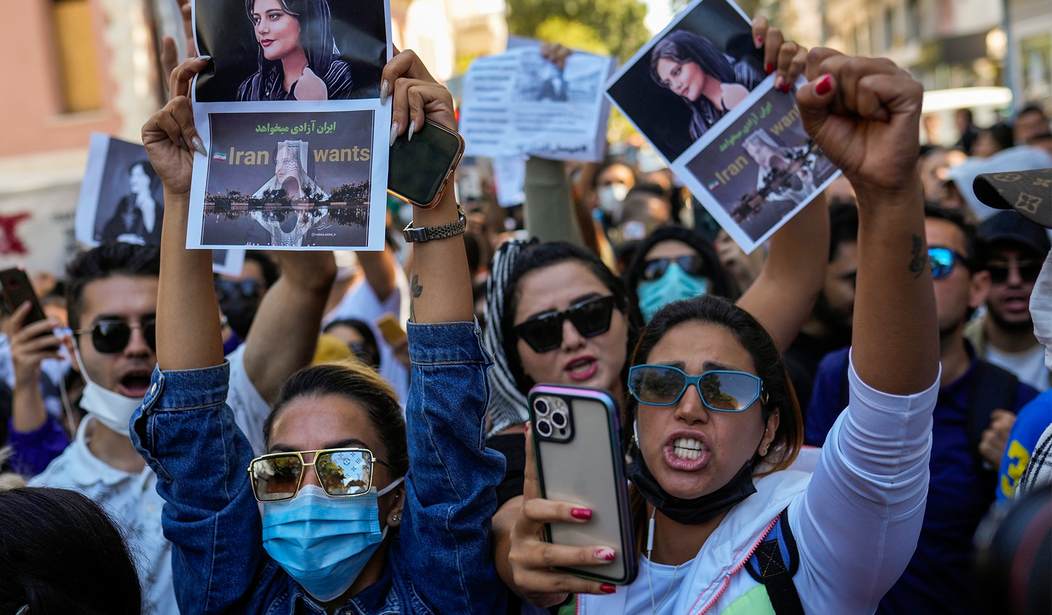A second protester has been executed in Iran. Majidreza Rahnavard was executed in the city of Mashhad, northern Iran, on Monday. This comes after the first known protester execution was carried out last week.
Rahnavard was publicly hanged from a construction crane. The execution was meant to send a message to protesters. He was charged with “waging war against God.” He was accused of fatally stabbing two members of Basij militia forces. The Basij are violently suppressing the protests.
Human rights activists say his was a “sham” trial. They say he did not have a lawyer in court and he showed signs of being tortured. Iranian state media reported that Rahnavard confessed.
In 2009, public executions were used to discourage unrest following the Green Movement protests after that year’s disputed election. Since then, they have been rare. Iran’s news agency, Mizan, which is a part of the country’s judiciary, published a collage of pictures of Rahnavard’s execution. They show him hanging from the crane with his hands and feet tied and a black bag over his head. Masked security force members stood guard in front of concrete and metal barriers to keep the crowd back. The prisoner is lifted by the crane to hang by a rope. They struggle to breathe before they asphyxiate or their necks break.
Rahnavard was publicly executed in the same city where his alleged crime took place. Allegedly four militiamen were injured, besides the two that died, but Iranian authorities did not give a motive for the attack. He was caught trying to flee the country on November 19.
Last Thursday, Mohsen Shekan, age 23, was executed. He was charged with allegedly blocking a street and wounding a security guard when the protests first started. He, too, was charged with “waging war against God.” Allegedly he blocked Sattar Khan Boulevard during a riot in Tehran on September 25. He allegedly stabbed a Basiji in the left shoulder.
‘Mohsen gave his life for freedom. He wanted a normal life. One more brave soul killed by this bloody regime,’ said Masih Alinejad, an Iranian journalist and campaigner, who posted a photo on Twitter she claimed was Shekari.
The execution comes as other detainees also face possible death penalty for their involvement in the protests, which began first as an outcry against Iran’s morality police and have expanded into one of the most serious challenges to Iran’s theocracy since the 1979 Islamic Revolution.
Activists warn others could be put to death as well soon, with at least a dozen people receiving death sentences over their involvement in the demonstrations.
Haidar al-Zaidi, 20, was sentenced to three years over a tweet of disputed origin deemed insulting to a pro-Iran ex-paramilitary force, according to court documents seen by AFP.
Iran is known as one of the world’s top executioners. Most executions are by hanging. Amnesty International condemned the use of the death penalty to suppress the protests. The organization said he has obtained a document signed by a senior Iranian police commander who asked that an execution of a prisoner be completed “in the shortest possible time.” He claimed that death sentences should be carried out in public because they are “a heart-warming gesture towards the security forces.” These people are pure evil.
Mahmood Amiry-Moghaddam, the director of the Oslo-based activist group Iran Human Rights, said that there must be strong reactions to the use of public executions or else there will be daily executions of prisoners.
Public execution of a young protester, 23 days after his arrest, is another serious crime committed by the I.R. leaders and a significant escalation of the level of violence against protesters. #MajidrezaRahnavard #IranRevoIution2022 #Mahsa_Amini pic.twitter.com/Ucj5iPZ8Z8
— Mahmood Amiry-Moghaddam (@iranhr) December 12, 2022
Thousands of detained protesters, and a dozen death sentences already issued. There is a serious risk of mass-execution of protesters. Today's execution must receive such a strong response as to deter the I.R. leaders from more executions. #MajidrezaRahnavard #IranRevoIution2022
— Mahmood Amiry-Moghaddam (@iranhr) December 12, 2022








Join the conversation as a VIP Member